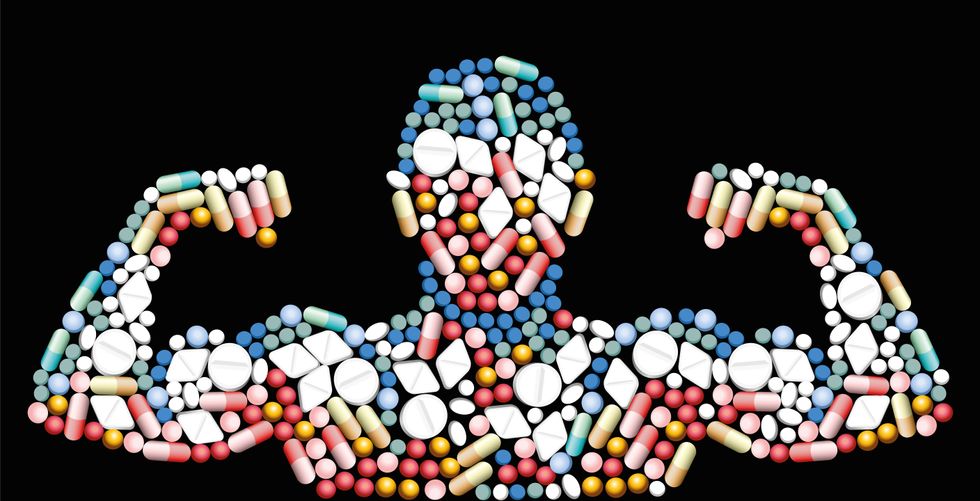Drugs for Maximum Athletic Performance Leads to Ruined Lives
Athletes everywhere are ruining their careers because they’ve fallen victim to the temptation of performance-enhancing drugs. It seems easy enough to pop a pill or shoot the drug up, and go on your way doing more in less time - more than you could ever do with just training.
It sounds like a dream, right?
When you’re yearning to be the best in a sport or win the gold, it’s easy to take the risk. The success, fame, and glory is all worth the risk, or is it?
Careers are ruined instantaneously. Take Barry Bond, who was one of the best baseball players of all time. The BALCO scandal was one of the first cases of an athlete using performance-enhancing drugs, and it gained so much attention the U.S. Congress conducted the investigation.
It wasn’t exactly the attention Barry Bond was shooting for when he decided to use anabolic steroids.
What Drugs Do to Athletes
Anabolic steroids are used by approximately 30% of college and professional athletes. They are known to increase muscle mass and strength. Steroids are harmful to the cardiovascular system, especially since they increase bad cholesterol levels and lower good cholesterol levels. Increased bad cholesterol can clog arteries and result in elevated blood pressure levels.
People who abuse anabolic steroids usually take them orally or inject them into the muscles. In order to avoid unwanted side effects or maximize the drugs' effects by taking them in ways that include:
- Cycling - Taking doses for a while, then stopping for a time, then resuming use.
- Stacking - Combining two or more different types of steroids.
- Pyramiding - Increasing the dose up to a high amount and then decreasing the amount.
The impact of steroids on the brain is different from the effect of other drugs. They do not create the euphoria resulting from the use of such drugs as opioids, so there is no ‘high’.
Common steroid effects are:
- Paranoid
- Extreme and/or unreasonable jealousy
- Irritability
- Delusions
- Impaired judgment
- Mood swings
Beyond the use of anabolic steroids to increase physical strength, many athletes use medications to manage the pain that often accompanies training and competition in games, along with sports-related injuries. Research indicates that high school athletes are much more likely to become addicted to pain management drugs, such as Vicodin. Among athletes, football players are the most common victims of prescription drug addiction.
Prescription drugs are available illegally, but most abusers get them straight from their doctors. Opioid painkillers are the most widely prescribed painkiller and the most addictive, especially for young adults. The ability to get past the pain to do more on the field and in the classroom drives them to continue to use them longer than needed.
Why People Take the Risk
After the scandal involving Barry Bonds, why do athletes continue to use these drugs? There are many reasons. Among student-athletes in high school and college, the drive to excel can be very powerful. While only a limited number of athletes are recruited by highly rated colleges, the number of athletes who strive to be recruited is high. For student-athletes in poorer areas, recruitment by a first-rate college may feel like their only opportunity to escape poverty. For those athletes who are recruited, the expectation that they will excel remains high or they risk losing their scholarship. At both the high school and college levels, aside from the expectation that they will excel on the playing field, there is also the expectation that they will perform in the classroom, too. This serves to increase the pressure and stress that these athletes are subjected to.
The number of positions on professional teams is even more limited, so a college athlete must be the best of the best if they hope to play professional sports. This is more than a matter of the fame that comes with playing professional sports. Professional athletes generally receive impressively high pay. Many athletes believe that their only chance at real success in life lies in playing for a professional team. In addition, the career of a professional athlete may last only a few years, meaning that these professional athletes can expect to enjoy their high pay for a very limited time
Will People Ever Stop Using?
This is a hard question to answer. Sports organizations and especially the Olympics have recognized that athletes may be under the influence of performance-enhancing drugs. For this reason, they have taken steps to ensure that everyone is playing fair with regular drug screening tests. Does this mean that there are no drugs involved? We would like to think so, but it’s likely not that easy.
The only thing we can do is remind athletes that the risk is way too high to use drugs to excel. As much as they want to succeed, they may just be ruining their lives by trying to beat the system. Even if an athlete doesn’t outperform his opponents or doesn’t win the gold medal at the Olympics, he/she will have another chance to do it. There is no other chance if drugs are found to be involved.
Even when an athlete isn’t caught using drugs to improve his performance, addiction can be overpowering to the point of them not being able to play or compete. For these athletes, their career can be delayed, as they must seek addiction treatment to overcome the challenges of drug abuse.
Look at the whole picture if you are thinking about or have used performance enhancing drugs. It may seem like a surefire way to win, but it may just make you lose in the long run. More information regarding the effects of steroids can be found on the website of The National Institute on Drug Abuse.
About The Author: Kylah Strohte is Editor-In-Chief of AddictedToAlcohol.com, an online resource dedicated to stopping alcoholism in a refreshingly entertaining style. She has extensive experience in publishing, journalism, and marketing, with a focus in the Addiction Treatment and Substance Abuse industries, among others. Kylah earned her BA in Linguistics from University of Maryland, College Park, class of 2012. She now lives in Los Angeles and isalso actively involved in the LA Terps, the Los Angeles chapter of the UMD Alumni Association. Kylah works in digital marketing, writes articles for various websites and blogs related to addiction treatment, as well as helps manage a 24/7 addiction treatment helpline.























